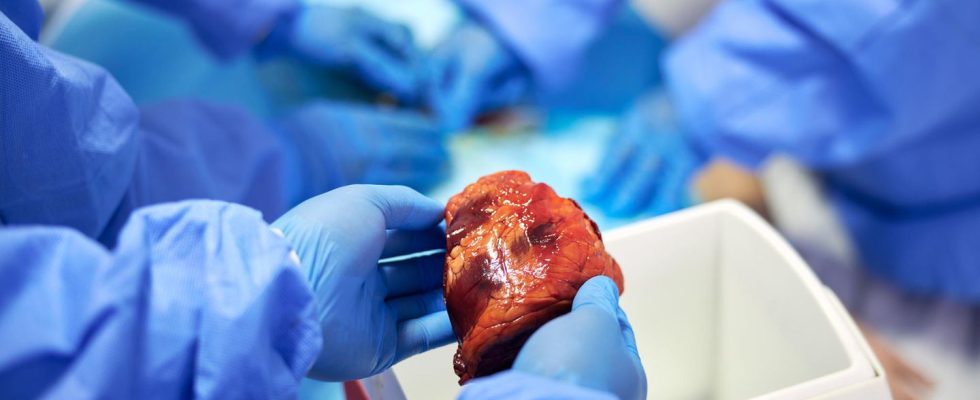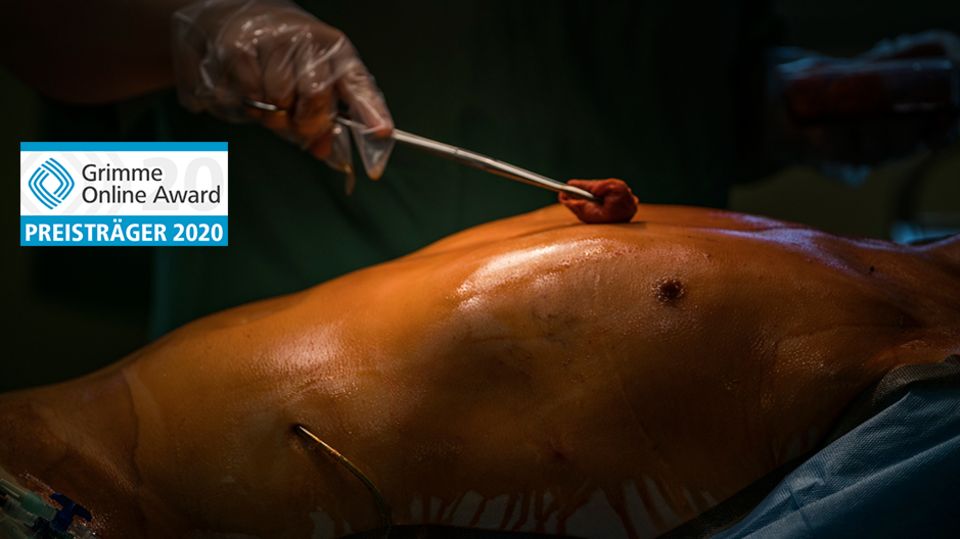Long waiting list
New organ donation register starts: What you need to know
Removal of a donor organ: A new online register will be launched on Monday to make it easier for potential donors to declare their willingness to donate.
© Pond5 Images / Imago Images
A new portal for those wishing to donate organs is intended to provide more people in need with donor organs. How it works and what should be improved by it.
In Germany, thousands of sick people are waiting for a donor organ. However, the willingness to donate organs has not yet been particularly pronounced. A new online register, which will be activated on Monday, is intended to make it easier for potential donors to declare their willingness to donate. The Federal Ministry of Health, health insurance companies and medical associations hope that this will lead to more organ donations – and thus more lives saved. The portal can be found at www.organspende-register.de.
How does the new register work?
Potential organ donors can register their willingness to donate in a central register from Monday. The introduction will take place gradually: First, it is possible to submit a declaration for or against organ donation using an identification document with an eID function, for example an ID card. From July, registration should also be possible using a health ID, which the insured receive from their health insurance company. From July 1st, hospitals should be able to access the declarations – and then transplant an organ in the event of a medical emergency.
What is the current legal situation?
Up to now, every person with health insurance from the age of 16 received regular information material from their health insurance company, which they could use to decide whether or not to donate organs and tissue after brain death. Ideally, every person willing to donate always carries their organ donor card with them, which documents their current stance on this matter.
What improvement should the register bring?
The previously used organ donor cards could be lost or not be found in an emergency. The new central register is available at all times. If organ donation is considered, the hospital staff can access it at any time and retrieve the declaration of the person wishing to donate. The register is also intended to relieve relatives of having to make a difficult decision about organ donation in an emergency. The directory documents the decision and thus ensures clarity.
Is the decision to donate organs permanent?
Entry is voluntary and free of charge. It can be changed or revoked at any time. The register is located at the Federal Institute for Drugs and Medical Devices. According to the institute, the data is stored securely on a server in Germany. The declarations may only be accessed by authorized hospital employees. The institute wants to publish the number of declarations recorded in the organ donation register every year.
How great is the need for donor organs?
The number of people on the waiting lists for a transplant is currently around 8,400 – which is many times higher than the number of organs available. In an international comparison, Germany is at the bottom of the list when it comes to organ donation. According to the European Eurotransplant Association, a new kidney is needed most often (6500 people). Around 870 people are waiting for a new liver and 690 are hoping for a heart donation. Last year around 3,900 organs were transplanted, and in 2022 there were 3,600 organs.
Is there criticism?
The Patient Protection Foundation has criticized the start of the organ donation register planned for Monday as “half-hearted”. “The federal and state governments are preventing a citizen-friendly submission of the digital declaration on organ donation,” said foundation board member Eugen Brysch to the AFP news agency. “This thwarts the chances of success in helping seriously ill people.” No passport office in Germany has a data protection secure terminal; Citizens would therefore not have the opportunity to enter their decision for or against organ donation directly in the register on site.
The connection to the passport and ID points has “not even begun yet,” criticized Brysch. People could only register their entry in the organ donation register digitally themselves. The previous simple ways of expressing wishes – the note in the living will and the paper ID card – remained. “However, those who are inexperienced with the Internet are excluded from the additional digital offering.” Brysch called on the federal and state governments to “ensure the connection to the passport offices within a year.”



